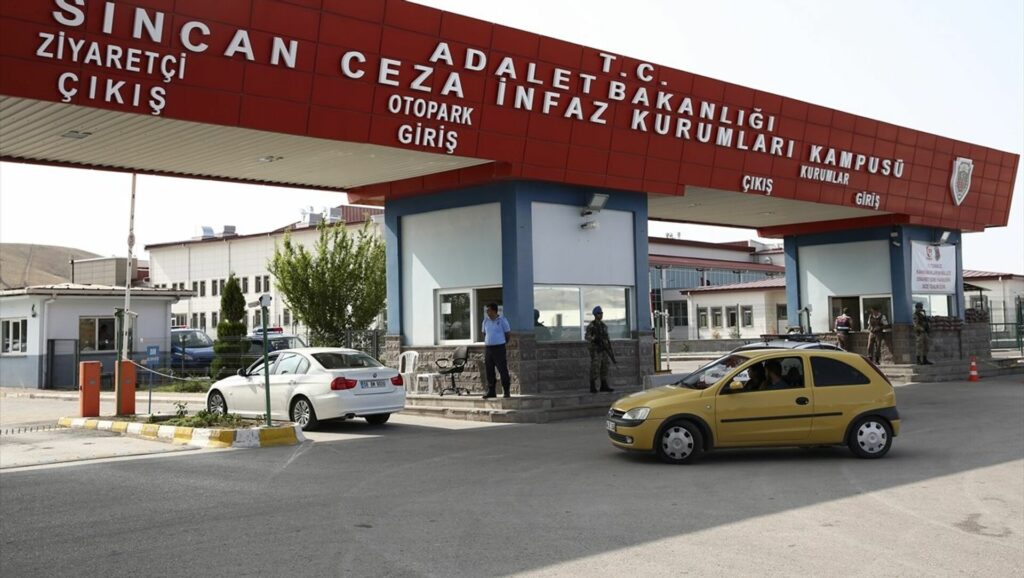Prison authorities in Ankara’s notorious Sincan Prison have been arbitrarily revoking political prisoners’ right to parole, the Stockholm Center for Freedom reported, citing the Tr724 news website.
According to prisoners, they are being denied parole for reasons such as “reading too many books,” “consuming too much water,” “meeting with the prison imam” or “attending the open university while in prison.” Inmates’ lawyers said many political prisoners in Sincan Prison had not been released although they had been eligible for parole for several months.
They explained there was a deliberate move to prevent political prisoners from being released from prison. “This is against the law and completely arbitrary,” said one lawyer. “Many political prisoners who have been incarcerated for a long time are deliberately prevented from being released.”
Political prisoner Hanım Yıldırım, who was sent to prison more than seven years ago, has not been released despite being eligible for parole for 11 months. According to the prison administration, Yıldırım was not granted parole because she had not expressed regret for her alleged crimes.
Moreover, she was told she would not be released because her brother had been arrested for alleged links to the Gülen movement, thus violating the principle of the individuality of a crime.
The Turkish government accuses the faith-based Gülen movement of masterminding a coup attempt on July 15, 2016 and labels it a “terrorist organization,” although the movement strongly denies involvement in the coup attempt or any terrorist activity.
According to the Turkish Penal Code, people convicted of membership in a terrorist organization are eligible for parole after serving two-thirds of their sentence.
However, authorities have made it increasingly difficult for political prisoners to benefit from parole by requiring good behavior reports. Prisoners are also required to disclose their political beliefs and repent for their “crimes.” According to lawyers, this contravenes the Turkish Constitution.
Former mayor of eastern Agri province Mukaddes Kubilay, who is currently incarcerated in Sincan Prison, was also not granted parole because she did not renounce her political views. She said she would never express any kind of regret for her beliefs and refused to have it used as a bargaining chip for her freedom.
Zeynep Han Bingöl, 62, who was sentenced to seven years, six months in prison, said this practice was against good conscience and in violation of the law. She said there were several young Kurdish women in the prison who were not granted parole because of their political views.
Another woman, Rojda Erez, who is also eligible for parole, has not been released for months because the prison administration confused her file with that of another inmate. The administration told Erez that she had killed her husband 15 years ago and that her release was delayed because she might hurt someone else. Erez, however, has never been married and is imprisoned for political reasons. When she pointed this out, the administration said it was a mistake but that she had consumed a lot of water during her time in prison so it was decided to keep her for a while as a disciplinary punishment.
To legitimize the suspension of parole, prison authorities launch disciplinary investigations into political prisoners and issue them bad behavior reports. Good behavior reports are key for a prisoner to be eligible for parole.
Opposition politicians have repeatedly criticized prison authorities for arbitrarily revoking parole rights; however, despite their outrage the authorities have continued the practice.

